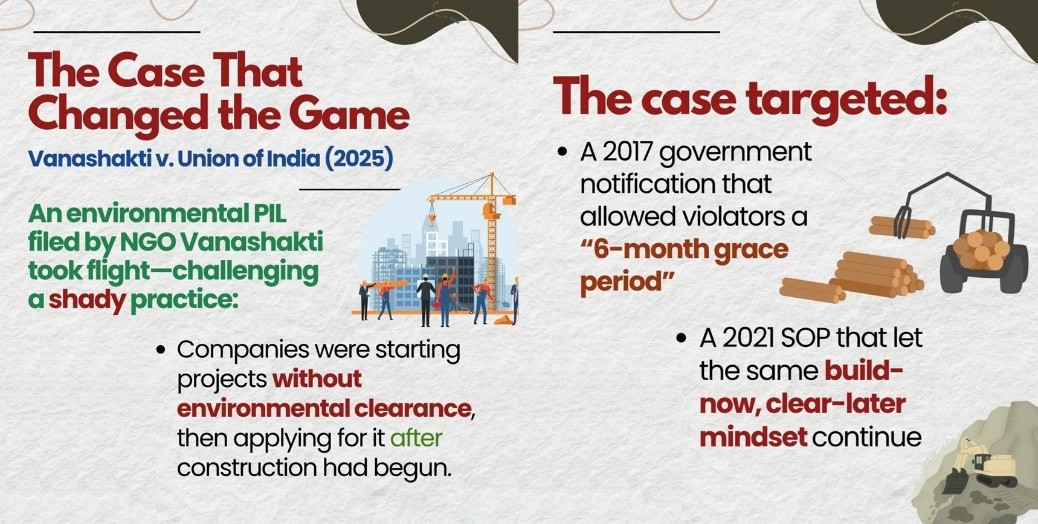PREVIOUS
Vanashakti Vs Union of India case
August 10 , 2025
15 hrs 0 min
21
0
- The Supreme Court of India struck down the 2017 Notification and 2021 Office Memorandum that allowed ex-post facto environmental clearances.
- Environmental Clearances (ECs) under the Environmental Impact Assessment (EIA) Notification 2006 must be obtained before project commencement.
- The struck down 2017 Notification introduced a one-time amnesty for projects that began without prior ECs.
- The 2021 Office Memorandum provided a procedural framework to grant retrospective approvals.
- The court ruled that ex-post facto ECs violate the precautionary principle and the environmental rule of law.
- The 2021 Office Memorandum was considered a regulatory instrument lacking statutory authority.
- Retrospective clearances encouraged violations and undermined the EIA framework's integrity.
- The court maintained that prior EC is a substantive legal safeguard and not a mere formality.
- Past ex-post facto clearances granted before the judgment remain valid to protect legal stability.
- No further more retrospective environmental clearances can be granted after this judgment.
- Projects that started without ECs and did not apply for regularisation before the ruling face enforcement actions.
- The Enforcement actions may include show-cause notices, financial penalties, closure or demolition orders.
- The Regulatory bodies such as Expert Appraisal Committees (EACs) and State Environmental Impact Assessment Authorities (SEIAAs) cannot process ex-post EC applications.
- The ruling requires, the project developers to obtain environmental clearances prior to land acquisition and construction.
- It emphasizes integrating environmental compliance in early project planning and contracts.
- Investors must consider this ruling in environmental, social and governance (ESG) risk assessments and disclosures.

Leave a Reply
Your Comment is awaiting moderation.


